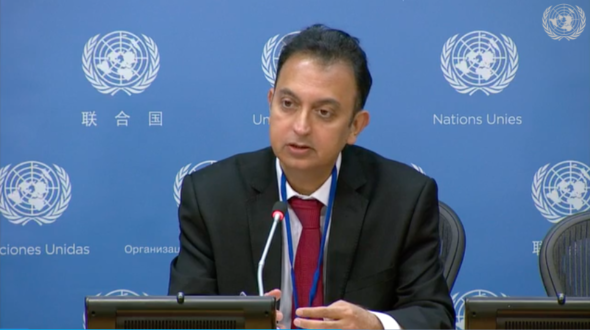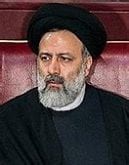iranintl – The UN Special Rapporteur on Iran says the levels of killings, torture, and brutality against the Baluch minority in Iran are “shocking”.
Speaking at an event in London on Saturday, Javaid Rehman revealed that more than half the total number of people that were killed since the start of the “Woman, Life, Freedom” protests were from the Baluchis and Kurdish-populated provinces.
“Children from Iran’s Baluch and Kurdish provinces constituted at least 63% of the recorded victims of the protest,” the official said.
In Iran’s eastern Sistan-Baluchistan province, there are many ethnic Baluch who are mostly Sunnis. The Baluch community has been one of the most persecuted in Iran during the past 44 years, with the highest execution rate.
The event called “Baluchistan: Dignity, Freedom and Justice for All” coincided with the 75th anniversary of the Universal Declaration of Human Rights and was organized by the Association des Chercheurs Iraniens (ACI).
Javaid Rehman said in his last report to the United Nations he pointed out that the Baluchis are disproportionately targeted and executed within the Iranian criminal justice system.
The Baluch community represents only two to six percent of the Iranian population, yet they account for around thirty percent of all executions. Security forces also target them extrajudicially.
“In the first nine months of 2023 at least 90 people have been murdered extrajudicially by the Iranian security forces including at least 22 fuel carriers,” Rehman added.
According to Amnesty International Iran executes more people annually than any other nation except China.
The UN Special Rapporteur said Baluchis are “undermined systematically because they are left in poverty, rendered vulnerable to man-made or environmental calamities and politically, economically and socially they are so disempowered that they do not have a voice.”
He called the oppression, persecution, and discrimination against Baluchis a “systematic state policy”.
 Shabtabnews In this dark night, I have lost my way – Arise from a corner, oh you the star of guidance.
Shabtabnews In this dark night, I have lost my way – Arise from a corner, oh you the star of guidance.



